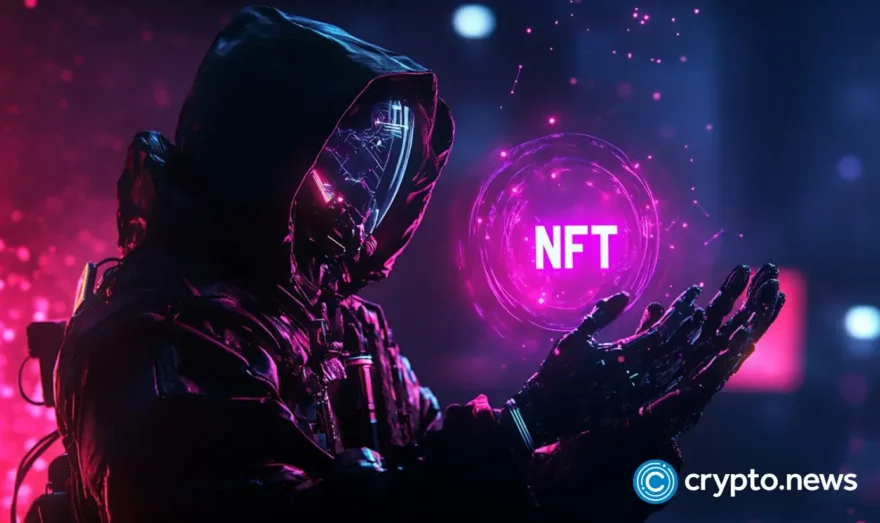Rising Star In The Bitcoin World: Interview With Elizabeth McCauley of Coinsecure

Those who know Elizabeth (Ploshay) McCauley might say that she is on a career trajectory akin to the explosive rise of Bitcoin. As the Head of Global Business Development at Coinsecure she is involved in a high-stakes movement to fuel bitcoin access in India, one of the world’s fastest growing countries. She is also a Board Member of the Bitcoin Foundation whose charge it is to standardize, protect and promote Bitcoin.
Then there is her board involvement with Code to Inspire, an onramp for women in Afghanistan who have an interest in entrepreneurship and technology. McCauley is also a passionate supporter of Femtech and has been named a top FinTech influencer.
In the spirit of a New Year, we reached out to McCauley to talk about her fascinating journey into the Bitcoin world and what is in store for her for 2017.
Tell us About Your Professional Path?
From an early age, I was interested in and got involved in politics at a local and state level. I studied political science at Wheaton College and upon my graduation headed to Washington, DC with high hopes of making a difference. I started working for a Congressman and soon picked up the Middle Eastern policy portfolio. I appreciated the Congressman’s work to limit the size of the federal government to promote individual liberties, states rights and keep the government out of our lives. However, I often got frustrated as I felt that policy could only go so far to get rid of international monetary corruption and solve age-old issues like financial inclusion and the oppression of women internationally.
Interesting. How did you Discover the World of Bitcoin?
Great question! In early 2013 a friend of mine introduced me to Bitcoin while I was at a crux in my career and wanting to get involved in something where I felt like I could be a part of a real solution. The more I learned about the technology, the more I saw that Bitcoin is truly a decentralized solution to issues that the policy realm simply could not fully solve. I became intrigued with the fact that one can send funds to anyone around the world (including those who have been marginalized and financially excluded).
What was Your First Leap into the Space?
In the summer of 2013, I ran for the Bitcoin Foundation Board of Directors and won the seat and started in October of that year. My main goals were to help further expand the reach of Bitcoin to marginalized groups such as the financially excluded and women in countries where they are prohibited from having a bank account. I also had and continue to have the goal of ensuring that Bitcoin remains decentralized and free from being hijacked by centralized efforts to make it into something it’s not.
In 2014, I had the privilege of joining the Bitcoin Magazine team to head up operations. It was here where I learned more about the technology and it’s tremendous potential to change the world. That led to my next stint, this time as a member of the BitPay team to handle non-profit and political outreach. It was neat to discover that non-profits can truly benefit from not just accepting donations in Bitcoin but sending funds overseas via that mechanism.
Now I have the privilege of working for Coinsecure, witnessing Bitcoin’s rise in India where the current financial ecosystem is just not reliable.
Tell us a Little More About Coinsecure and Your Role There.
I was privileged to join the Coinsecure team in January of last year to handle Global Business Development. I first learned about Coinsecure in June of 2015 when I was looking for the top Indian exchange for one of my BitPay merchants to work with. I soon learned that Coinsecure was taking the lead in India as a real-time trading platform and exchange with open order books. I was highly impressed by how the Coinsecure team built the most robust exchange platform in India on only a seed round and I was also impressed by their mission of connecting India to Bitcoin.
Since joining the Coinsecure team, I’ve been able to work on several of our main partnerships to make it easier for Indian citizens to not only use our services but also to open the door for international companies to seamlessly transfer funds into India via Bitcoin. What I’ve seen is that there is so much potential for Bitcoin in India but much work to be done in terms of education.
What Impact do you Anticipate Demonetization in India Will Have on Bitcoin Activity There?
In terms of demonetization, Bitcoin is really a top solution now for Indian citizens who have been put in quite a difficult spot by the government’s cancellation of larger monetary notes. India is also experiencing a boom in internet use as well as mobile phone use. In addition to the current issue of demonetization, India is the largest remittance receiving country as well as the country with the second largest population. And it has a very large unbanked population. Indian citizens who are able to obtain credit and debit cards often face issues upon checkout that we would never experience in the US. There are many Indian merchants and brick and mortar stores who would love to be online but just simply do not have the ability to do so through traditional payment methods. Bitcoin is an optimal solution for these merchants and Indian citizens.
Bitcoin Aside, Can You Talk a Bit About Your Involvement with “Code to Inspire?”
I first got connected to Code to Inspire’s Founder, Fereshteh Forough back in June of 2014 when she was at the Women’s Annex Foundation. I was inspired by Fereshteh’s work and story and how she was using technology to enable and empower girls in Afghanistan. In December of 2014, Fereshteh asked me to join the board of a new organization she wanted to form, Code to Inspire. It launched in January of 2015 and we now have the first girl’s computer coding school in Afghanistan.
Code to Inspire is a safe place for girls from high school through college to learn how to code after school. Our ultimate goal with the program is to help these girls not only gain self-confidence to set goals and dream but to have a marketable skill to be able to be employed by tech companies in Afghanistan and globally. Computer coding and website development are skills that these girls can use to bring in a livelihood and also create their own projects to solve issues in Afghanistan. Technology enables the marginalized to get connected to individuals globally. Through internet access and computer coding skills, girls in Afghanistan are not only able to get connected to individuals around the world but also come up with their own solutions to problems they see in society around them.
And Your Work With the Bitcoin Foundation. Tell us a Little About That.
I’ve had the opportunity to serve on the Bitcoin Foundation Board of Directors since October of 2013. During this time, Bitcoin has seen it’s ups and downs, but even more so, I’ve had an opportunity to see Bitcoin’s global use case. Bitcoin might serve different needs for someone in the US than an individual in India, Venezuela or Kenya, but has merit and is relevant as a solution to bring about financial inclusion, freedom of transaction, accessibility and even greater integrity through the Blockchain.
As there has been an increased look at private blockchains in the west and perhaps a dialogue that Bitcoin isn’t as relevant anymore, the Bitcoin Foundation put out a new manifesto stressing even further the value of Bitcoin and the still untapped potential of this technology to promote and provide financial freedom globally. You can read the new manifesto here.
What was the Biggest Surprise for you in Terms of the Bitcoin/Blockchain Space in 2016?
2016 was significant in terms of a revitalization in the significance of Bitcoin as a currency. 2015 was a year with a greater dialogue around “blockchain technology” and perhaps an even greater emphasis on private blockchain solutions. That is fine, but what cannot be disputed is how Bitcoin as a currency and the Bitcoin blockchain served as an optimal plan B for individuals in countries like Argentina, Venezuela, and India to a slew of countries in Africa where issues like demonetization, inflation, capital controls and even restriction on international enterprise have left individuals with few options to turn to.
2016 was also a year for greater infrastructure growth in terms of Bitcoin exchanges, payment gateway improvements, remittance platforms, wallets and even Bitcoin debit cards. With the Ethereum DAO hack, Bitcoin’s traits of immutability stand out as well. Perhaps I’m a bit biased in favor of Bitcoin as a currency. It was particularly exciting to see Bitcoin’s blockchain take a turn in 2016 towards Bitcoin as a featured currency for those living in countries facing financial oppression.
Finally, What Do You See on the Horizon For 2017?
I believe that Bitcoin as a currency will continue to be used and leveraged globally and I hope there will be additional exchanges and brokerages set up in countries yet penetrated with Bitcoin.
There is a clear need for solid infrastructure in Africa, South and Central America and stronger on and off ramps to Bitcoin. I think that we will see the price increase further, but really see that the concept of Bitcoin and the freedom-promoting nature of the technology will speak louder than any further price spikes. Certainly, traditional financial institutions and banks will create additional blockchain solutions with private blockchains, but Bitcoin will remain a superior solution to enable and empower individuals who have been failed by traditional financial institutions.











